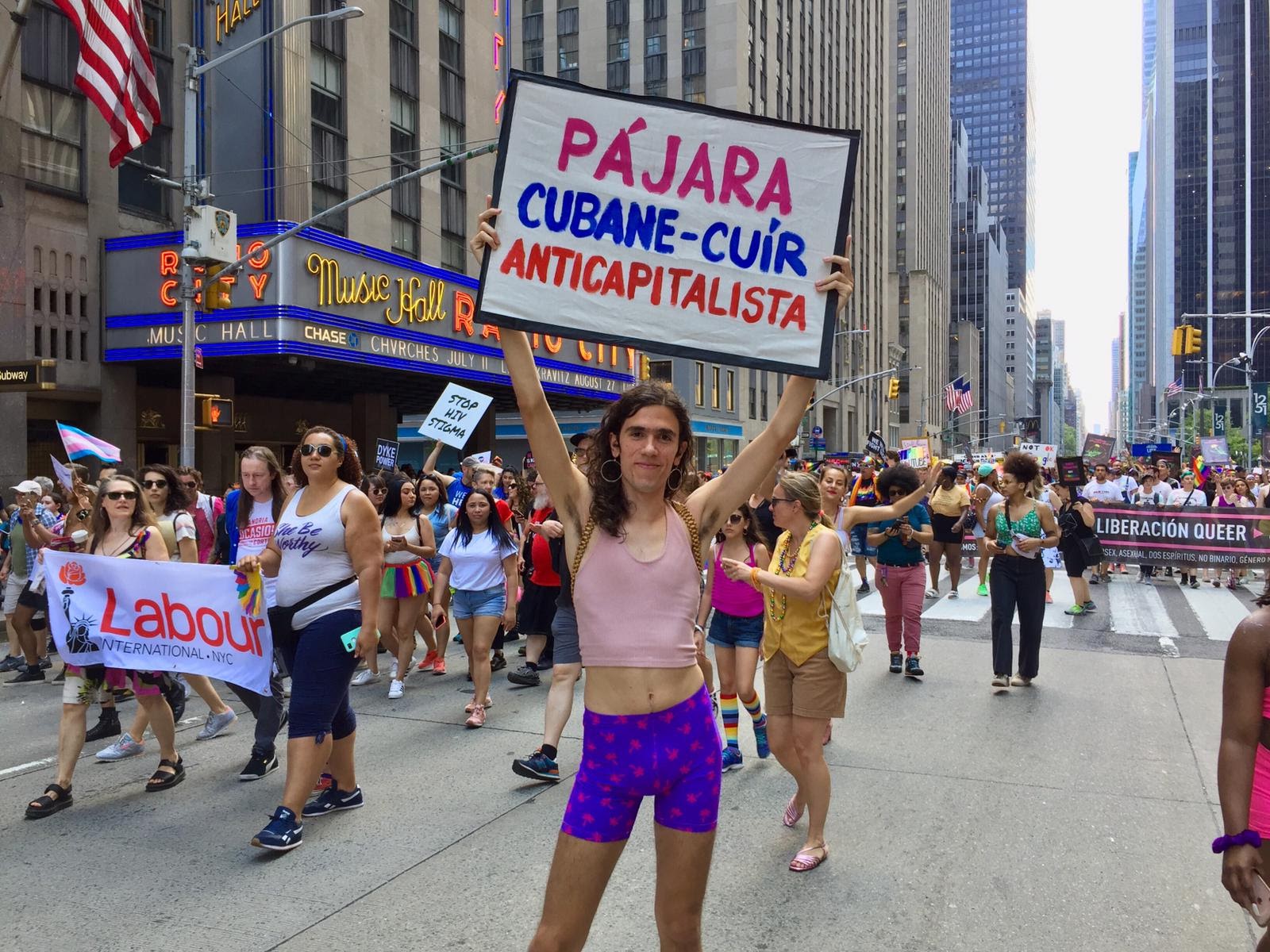What happened between the November 2019 U.S. supported military coup in Bolivia and the elections in October of 2020? In this interview, Mijente spoke to Canela Crespo, a 27 year old member of the Columna Sur organization in Bolivia, which forms an integral part of the Movimiento Al Socialismo party (MAS). Canela was also a candidate for deputy for La Paz in last month’s elections, and she made some time to talk to us a bit about the lessons learned in this difficult year.
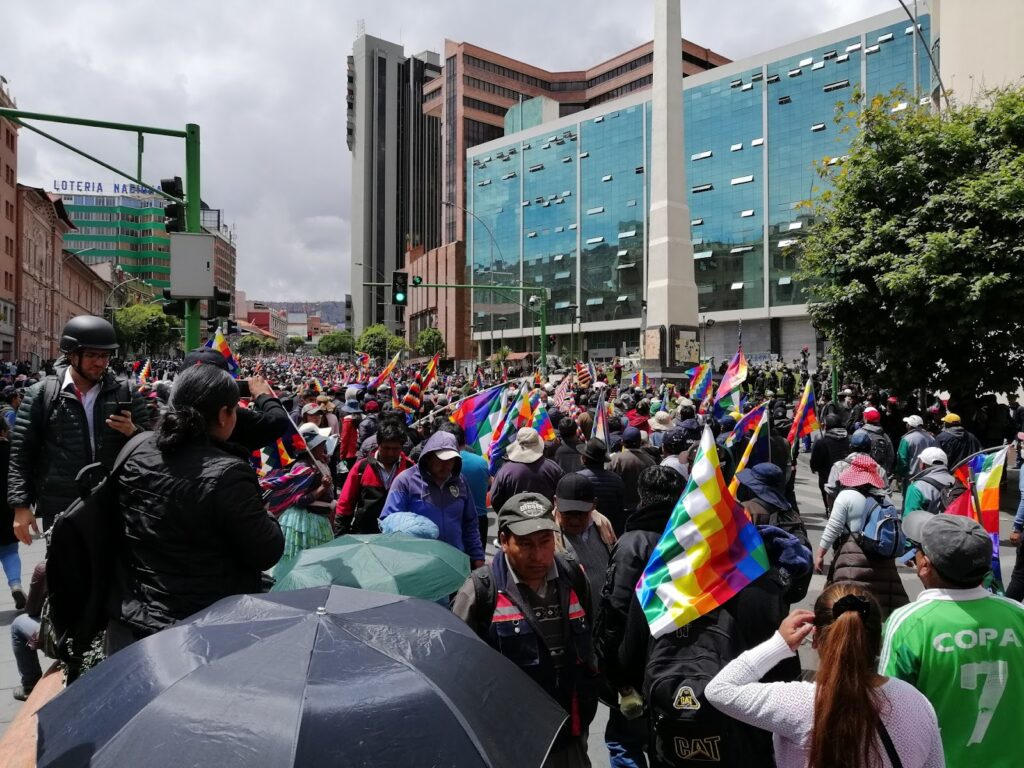
Mobilizations after the coup, 2019. Photo by Canela.
THE COUP
In November of last year, the head of Bolivia’s military called on Evo Morales to resign from the presidency. The coup was led by a far right faction that seized power and massacred protesters who were against it. While the vacancy of Evo Morales was complex and several non-right leaning groups also supported it; it was not the people that took charge in Bolivia, it was a conservative, racist, religiously fundamentalist right.
“We have had a bad time this year, I mean, we have really had a bad time,” says Canela over the pixelated Zoom call. “I remind you that Añez at the time of the coup entered the Government Palace with a Bible in hand, saying ‘at last the Bible returns to the palace.’”
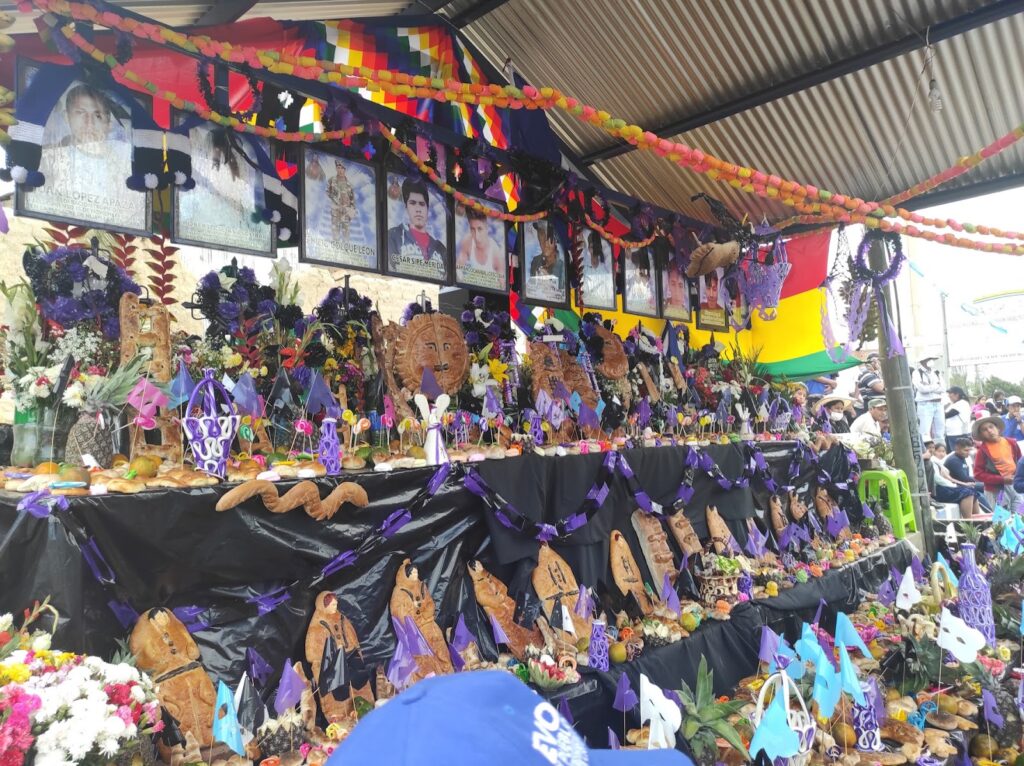
She is referring to Jeanine Añez who illegally ascended into power in place of Morales. Canela recalls the moments in the coup that were initiated with extreme violence including the public burning of the whipala by the coup leaders. The wiphala is a symbol and flag that represents not only Aymara and Andean communities but also all indigenus people of Abya Yala.
“Of course the coup had a clearly racist motive. Racist, fascist, sexist, all the bad ‘ists’ were there as an element,” she tells us. There are two massacres that are internationally known that took place in Sacaba and Senkata, but Canela assures us they are not the only ones that happened during the coup. One day before the massacre at Sacaba, Áñez signed a decree guaranteeing impunity for the Armed Forces.
“We have dozens of assassinated comrades. We have hundreds of unjustly detained and still hundreds of exiles. In San Julián we have deaths, in the southern part of the city of La Paz, we have deaths and disappearances,” she says. “People have been talking about how some families of the disappeared have sometimes even preferred to bury murdered people instead of registering the disappearances so as not to be intimidated later.”
RESTORING DEMOCRACY & THE STREETS
The elections in October of this year gave Luis Arce, a victory in Bolivia’s presidential election, with 55% of the votes against six rivals. This vote gave a win to the MAS party, of which Luis Arce is part of and served as minister of economy for 12 years under Morales.
“Those votes mean many things,” shares Canela, “they mean a reaction to that fascist narrative, a reaction to religious fundamentalisms, a reaction to the burning of the wiphala. In other words, it was a vote based on identity.”
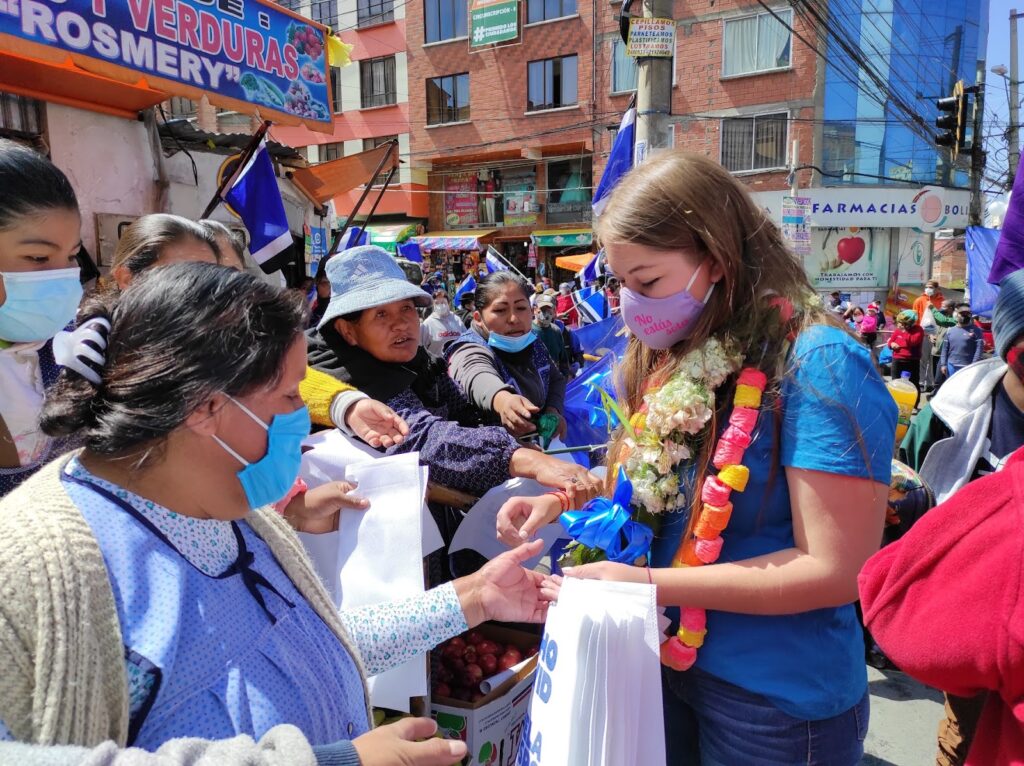
Canela tells us that the election results on October 18 were also a clear reaction to all the violence, all the impunity. So what is next for the MAS party and the people on their way to as she describes it, “recuperate their democracy”?
Previous to the coup, one of the mistakes of the MAS party, as Canela tells us, was that they had stopped maintaining the mobilization in the streets. “As a movement, as an instrument of social organizations, [the coup] found us demobilized,” says Canela. “This year has been a strong process of internal criticism, of self-criticism for us. We have had to reorganize ourselves, we have had to rearticulate our ways because we had no other option, because that has been the first form of resistance.”
In the last year, she says that they have worked on returning to their most democratic and essential forms, referring to the union assemblies, indigenous assemblies, farm workers assemblies, Black and working-class collective spaces, worker assemblies, etc. According to Canela, the days after the coup from November 10 to November 20, saw more district assemblies in the city of Alto than in the last ten years.
“I think it was from this social articulation that we first managed to consolidate the date of the elections,” says Canela, recalling that the elections in Bolivia were supposed to take place after the coup on January 22, then on May 3, then on September 6. “And so the power of Añez, of the de facto government, of the coup government was being extended and extended.”

That resounding victory of October 18 was achieved first in the streets before the polls. Canela says that their challenge is to maintain that state of social mobilization.
“Bolivia is a very politicized country, it is a country in which people tend towards social organization. I mean, if you sell candies on the street, you are affiliated with your Guild Federation. There is a very strong intention of social organization and that is a virtue,” shares Canela as she iterates how the candidate nominations for deputies and senators have been coming from these democratic collective spaces. “It also means that we must respond to those sectors articulated within the instrument.”
DEPATRIARCHALIZING
“We have to understand that patriarchy is a system that operates at a structural and systemic level in all the structures that exist, that is, in families, in political parties, in absolutely everything,” says Canela. “The MAS party is not exempt from that.”
She tells us that within the party they have had big discussions with their leaders and colleagues, challenging them for their machismo and their reproduction of their patriarchal privileges. Through their Constituent Assembly, a body of popularly elected representatives assembled for the purpose of drafting a constitution, they have included a process of de-patriarchalization.
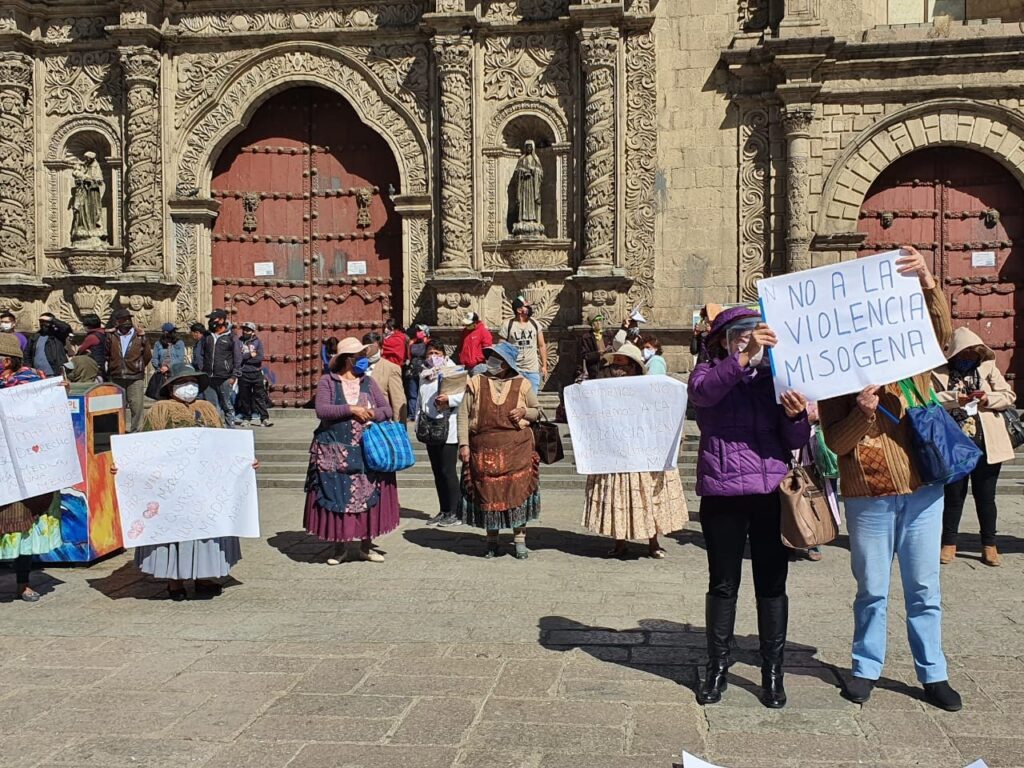
“What is de-patriarchalization?” Canela begins, “speaking from a plurinational state has opened up the possibility of starting a real process of de-patriarchalization. It means understanding that patriarchy is this system of oppression that has many intersections, right? I mean, we can’t stop seeing the colonial intersection, in other words, there is no dematerialization without decolonization…there is no de-patriarchalization without understanding that integral process must be anti-capitalist as well.”
She continues reflecting on the ways patriarchy operates by oppressing the least privileged sectors, which includes queer and trans communities. Canela cites Black american women’s movements from the 1970’s and on as her and her colleagues’ own site of learning about intersectionality and applying it to the realities of Bolivia.
Just a few days ago the Ministry of Culture was reopened, (because the coup leaders had closed it). “This Ministry of Culture has a novelty,” says Canela. “It no longer only has a Vice Ministry of Decolonization, but now also has a Vice Ministry of De-patriarchalization.”
This has been accomplished through the women who have been pushing this for years from within. “The blow has also been very hard against our bodies, against our lives. The persecution against us has been especially violent,” recounts Canela.
ACCOUNTABILITY & STRUGGLE AGAINST FAR RIGHT
“That is the main challenge,” Canela tells us, “At some point this year we stopped thinking about democracy, about our well-being, which are the main concepts in our Political Constitution; because we were in a context in which we were dying and we were being robbed. We have had massive unemployment and we have nothing to feed our families with. So, restoring that is the first challenge. But how do we sustain that?”
The second is maintaining social mobilization, because as Canela tells us, they are still being attacked by the right wing’s narrative and rhetoric. “That fascist discourse must be defeated. We must defeat this conservative and violent discourse of religious fundamentalisms.” Canela believes that mobilization in the streets is needed to achieve this.
“It is necessary that all sectors of the population are involved in the management of the government. I believe that this is the way to ensure governance in the following year, because we continue in a very complicated context,” says Canela. In spite of the October 18 win, there are still shock and organized violent groups that are active.
In the last fourteen years of the MAS being in power, Canela says that they too, have been numbed. After the failed coup in 2008, they believed that they had defeated the fascist faction. They didn’t think they had eradicated racism, but they thought that at least people were now ashamed to be racist. All those naive thoughts fell apart during the coup, upon seeing the hordes of white conservatives in 4x4s, armed with clubs and beating any indigenous woman they saw in their polleras, or traditional clothing.
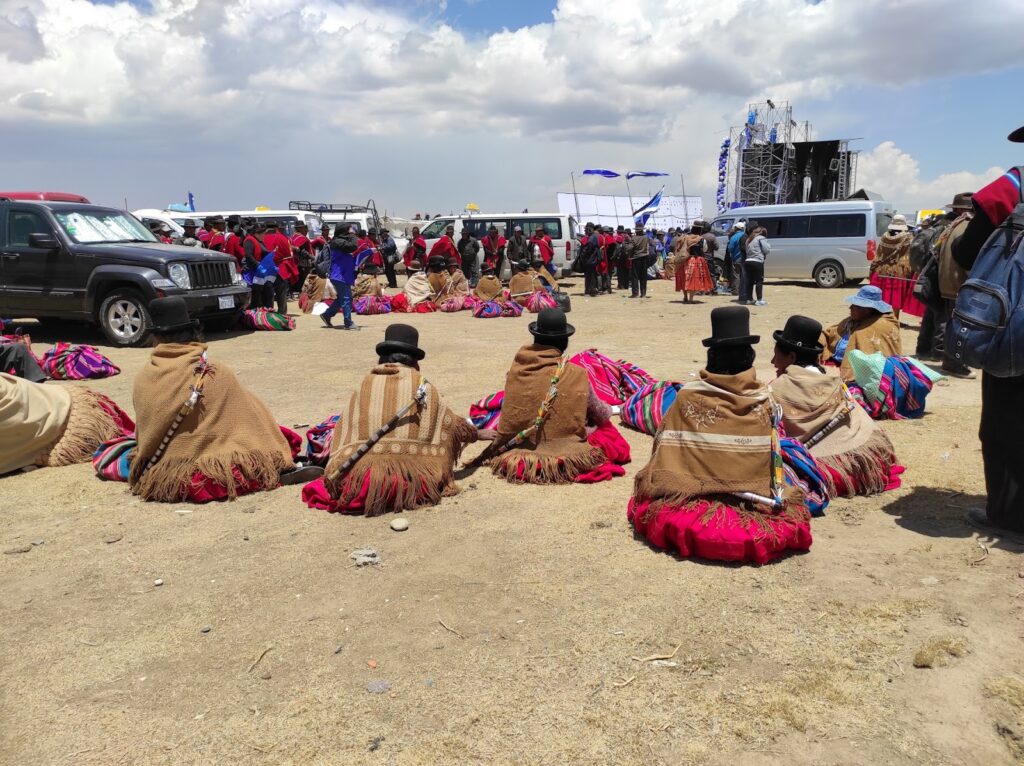
“At that moment, we realized that our decolonization process had not really been as complex as we had thought and that it had to be deepened,” says Canela. “In other words, deepening the understanding that racism is one of the tools of the oppressive colonial system.”
Canela tells us that now they are re-entering, not to avenge themselves, but to seek justice. “Because justice is needed, right?”
ADVICE
Canela considers numbness is the biggest enemy. “As I said before, we fell asleep at the wheel thinking that racism had diminished or that people were ashamed,” she says, “and I am very afraid that the same thing will happen in the United States now with the victory of the Democrats.”
Canela continues, “Trump is a whole monster. We all know it, no one is going to deny it. But something that [his rhetoric] did was arouse anger and indignation and criticism. And there have been great movements that came from that, that we also follow and admire with great force because they are organizing within the Empire.”
She says they see movements in the U.S. as a huge revindication and fear following Biden’s win, that things will return to how they were during the Obama era.
“Obama for us has been just as disastrous for our people here in Latin America. He has been as disastrous as Trump or anyone else,” she says. “He fell asleep in the rhetoric of being a Democrat, of being Afro-descendant, that is, for many things, right?”
Canela considers it very dangerous, because the progressive is not necessarily anti-systemic, and thus, the systems of domination are maintained. “The system of capitalist domination is maintained, the system of colonial racist domination remains and the system of patriarchal domination is also maintained,” she says.
We must not lose the lucidity that has been achieved in recent years in the United States and across Abya Yala. Right now there are a lot of movements happening across Guatemala, Haiti, Chile, Peru and beyond.
“What is happening today, these days in Peru, we are seeing it with great hope, because first of all, we have not seen such strong social mobilization in Peru for a long time. But we also see it as an echo of regional movements,” says Canela.
Bolivia had it’s elections on October 18th and a week later on the 25th, Chile voted to rewrite their constitution. Canela tells us that they have seen with great hope and enthusiasm how another country severely hit by neoliberalism like Chile, could finally overthrow its Pinochetist constitution.
“We must not forget that, we must not stop talking about it, because we have to have all of us together,” says Canela.
“Now diplomacy is not done only between governments, but is done above all between peoples. And that is why these spaces are important. That is why we need to continue talking, continue to recognize ourselves, continue complementing and feeding our processes. And helping us in solidarity in whatever way we can. Chile and Peru are extremely important at this time.”
SELF & COLLECTIVE CARE
In recent months, Canela and her colleagues have been very neglectful towards themselves, sleeping little, and while they’ve been able to accomplish a lot, she recognizes that it’s something that has to change.
“There has been a lot of political persecution, there has been a lot of intimidation, so we have had to change our ways of relating completely,” she says. “In fact, we no longer call or write to each other or WhatsApp. We know that everything was tapped. So I think it has been really difficult this year and these last few days we’ve realized that we continue to maintain these precautions despite the change of government, but I think it is something healthy.”
Canela says they still find ways to take care of each other. They have call networks, to check in that they have all made it home. Things that a year ago before the coup, they never thought to do. Now, in the process of restoration, there’s a lot of work ahead and must find ways to continue to care for themselves and each other.
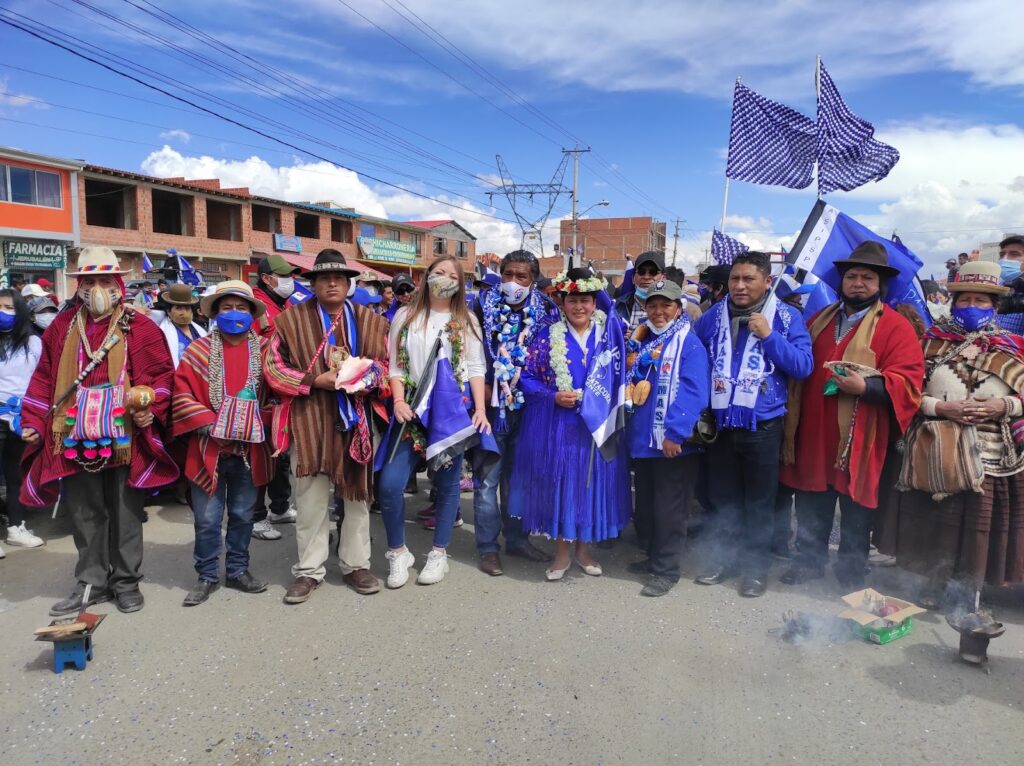
“To return, to want to return, but to come back better is also to recover the future.” Canela says that they are currently in a process of “cleaning house,” since the de facto government left behind everything in ruins.
“The money of all the institutions has been spent. There are filthy corruption cases.” she says.
“We have to make these public institutions work again, for the plurinational State, for decolonization, de-patriarchalization and everything that we really dream of, for our well being.
[part of the series: RESISTENCIAS BEYOND BORDERS by Ebony Bailey and xime izquierdo ugaz]

